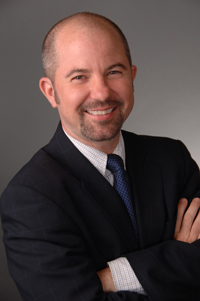Gay group sues gay group for bias against bisexuals

Shannon Minter
In what may be a legal first, a national gay legal group has filed suit against a national gay sports group for discriminating based on sexual orientation—against straights and bisexuals.
The lawsuit, filed in a federal district court, alleges that the North American Gay Amateur Athletic Association (NAGAAA) violates the Washington State law against sexual orientation discrimination in public accommodations. It says the group did so by imposing a rule that teams participating in the 2008 Gay Softball World Series could have no more than two heterosexuals per team.
Shannon Minter, legal director for the National Center for Lesbian Rights (NCLR), said NCLR has “tried very hard” to settle this case and have NAGAAA change its policy, but to no avail.
“We are still hopeful that NAGAAA will agree to change the policy, as that is our goal here,” said Minter. “We strongly support LGBT sporting leagues, but the best practice, and the only lawful one, is not to exclude players based on their sexual orientation.”
NCLR is representing three men who played on a San Francisco team competing in the World Series in Seattle, each of whom was asked “intrusive questions about his sexual orientation and his private life in front of a room of over 25 people.”
“The players were forced to answer whether they were ‘predominantly attracted to men’ or ‘predominantly attracted to women,’ without the option of answering that they were attracted to both,” according to the complaint. “After each player was interrogated, a panel voted on whether he was ‘gay’ or ‘non-gay.’”
NCLR said the NAGAAA panel voted that none of the three were gay. All three were men of color. NCLR said the panel also took votes on the sexual orientation of two other male players from the same team who were white. The panel voted that both those players were gay.
“NAGAAA’s committee refused to entertain the idea that the players could be bisexual,” said NCLR. “In response to a player’s statement that he was attracted to both men and women, a NAGAAA member responded, ‘This is the Gay World Series, not the Bisexual World Series.’”
“It damages our community to conduct witch hunts and to exclude people from playing in a sports league for not being ‘gay enough’,” said NCLR Sports Project Director Helen Carroll. “We wouldn’t accept this kind of treatment from a non-LGBT sports organization and we shouldn’t do it to ourselves.”
The three plaintiffs in the lawsuit—Steven Apilado, Laron Charles, and Jon Russ—are all bisexual. The public accommodations identified are municipal playing fields reserved by NAGAAA for its 2008 softball world series in Seattle. The complaint also alleges NAGAAA treated the plaintiffs differently because of their race and national origin.
Minter said the case was filed in federal court because the plaintiffs and the defendants are from different states.
NAGAAA, a non-profit organization incorporated in Wisconsin, did not respond to a request for comment.
The NAGAAA’s “Instruments of Governance” states that a “maximum of two heterosexual players” are permitted on each team’s roster and that teams who violate this rule may be disqualified from play or be made to forfeit all games, be fined $100, have its manager suspended, and have the heterosexual player permanently suspended from play. The word “bisexual” does not appear in the policy.
The only mention of “sexual orientation” in the policy comes under a statement of the group’s purpose: “To be a nonprofit organization dedicated to the promotion of amateur sports competition, particularly softball, for all persons regardless of age, sexual orientation or preference, with special emphasis on the participation of members of the Gay Community….”
The NCLR complaint notes that it was a team from Atlanta—called the “Mudcats”—that challenged the membership of the San Francisco team—the D2—at the 2008 series. The Mudcats raised their complaints after losing to D2 in the series’ semi-final game and during D2’s championship game with a Los Angeles team but the game was allowed to finish. After D2 lost the game, the NAGAAA organizers held a “hearing” to determine whether five players on D2 were gay or non-gay. Responses by one player indicating he was bisexual were disregarded. Although one black player and one white player gave nearly identical responses to the questions, only the black player was voted to be disqualified.
More than 180 teams participate in the annual event. In 2009, that included ten teams from Florida, nine from Atlanta, six from Boston, Dallas, and San Francisco, five from Chicago, four from San Diego, and three from Oklahoma.
The 2010 Gay World Series is slated to take place in Columbus, Ohio, in August. The complaint also notes that the organization’s principal place of business is either North Carolina or Florida.
The lawsuit, Apilado v. NAGAAA, has been filed in the U.S. District Court for the Western District of Washington.


Can you imagine how quickly any other sporting group would be denounced nationwide if they instituted a policy of a limit by sexual orientation, or a Christian football league limiting Muslim players?